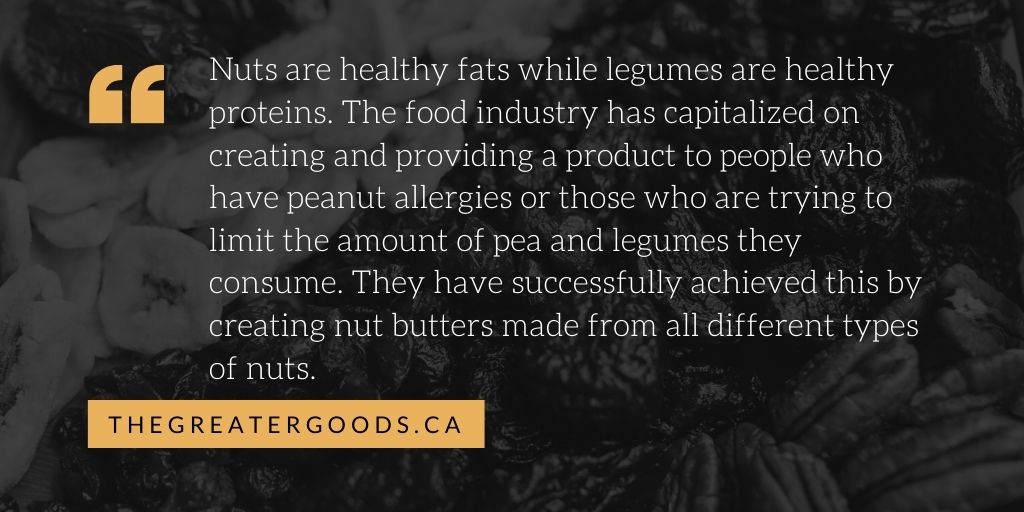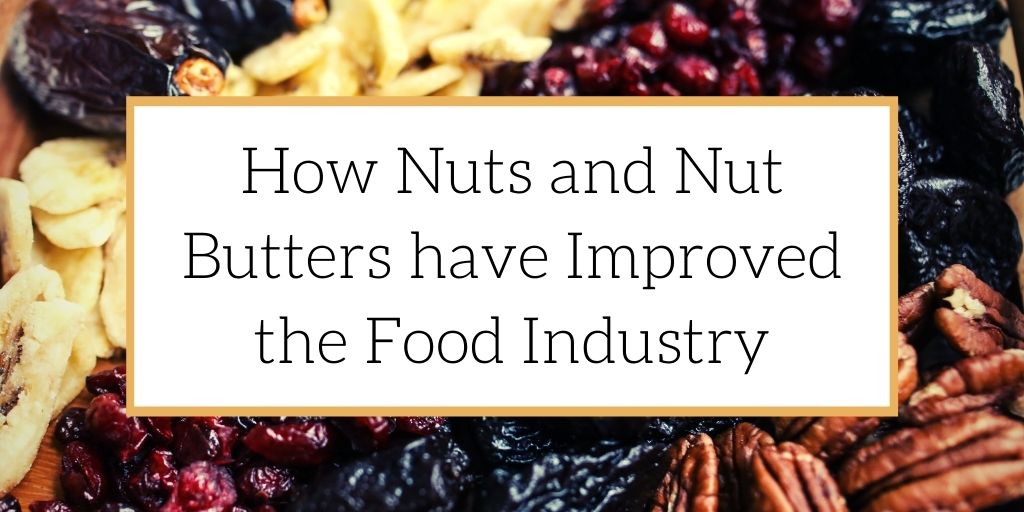Nuts and nut butters are healthy fats that have improved and expanded the food industry. They are versatile, tasty, and can be used in a variety of ways. Did you know that peanuts aren’t nuts at all? They are actually legumes, which is a type of pea. This makes it different from other nuts, like almonds, hazelnuts, and cashews.
Peanut butter used to be the only nut butter available on the market, making it impossible for those who were allergic to peanuts to enjoy one of the most adaptable flavors ever made.
Peanut butter and jelly, chocolate and peanut butter, ants on a log, buckeyes; these are just a few of the many recipes you can make using peanut butter, but only those who weren’t allergic got to enjoy these combinations.
That is until nut butter came on the scene.
What is Nut Butter?
Nut butter is a spreadable food paste made from grinding nuts into a butter-like consistency. Nut butter is mixed with sugar to sweeten it and a flavorless oil like coconut oil to make it smooth.
The most popular nut butters include almond butter, cashew butter, hazelnut spread, and sun butter. Nut butters used to be available only in specialty health food stores, but they are becoming increasingly popular that they are now available in most grocers nationwide.
Most nut butters are available in creamy or crunchy versions just like peanut butter, and the taste is extremely similar as well.
Many schools have now replaced peanut butter and jelly sandwiches in their cafeterias with sun butter or some other nut butter alternative so that those with peanut allergies can enjoy them too.
Natalie Butler explains how dangerous peanut allergies can be in her article on Healthline by saying, “Peanut allergies can be dangerous. The ACAAI reports that this is one of the food allergens most commonly associated with sudden and severe reactions, such as life-threatening anaphylaxis.”
What to Look for in Nut Butters
Not all nut butters are the same, so it is important to know what to look for and what to avoid.
Nut butters with ingredients like partially hydrogenated oil mean you will be consuming trans fat; a type of fat that can contribute to heart and cholesterol issues.
Alisa Hrustic with prevention.com discusses the effects of trans fat on the body by saying, “Trans fats spike your LDL (or the “dangerous”) cholesterol, which clogs your arteries. At the same time, they cause your HDL (a somewhat protective) cholesterol takes a dip, meaning excess cholesterol can’t be transported back to your liver to be flushed from your body.”
Nut butters can also have additional salt added to them which can increase your blood pressure and cause you to retain water.
When it comes to finding the right nut butters, check the label to see the amount of sugar and salt that is in the nut butter. In the ingredients list, check for partially hydrogenated oil to be listed. If so, you know there is an additional trans fat included in the nut butter. This can play a role in your overall heart health.
Why is Nut Butter so Successful in the Food Industry?
Nut butter is made from nuts, not legumes. Nuts are a single seed that is produced on a plant with its own individual shell that opens when the nut is ready to be eaten. Legumes are part of the pea family because there are multiple seeds in one pod.

Nuts are healthy fats while legumes are healthy proteins. The food industry has capitalized on creating and providing a product to people who have peanut allergies or those who are trying to limit the amount of pea and legumes they consume. They have successfully achieved this by creating nut butters made from all different types of nuts.
At eleatnutrition, they explain the nutritional difference between peanut butter and other nut butters by saying, “Nut butters (peanut, almond, cashew, etc.) are a good source of healthy fats and protein. As for the whole “almond butter is better than peanut butter” debate, variety is better. Each nut has their own unique nutrient content, so by occasionally switching between all the different kinds, you will be getting a wider variety of nutrients. Almond butter is slightly higher in monounsaturated fats and minerals, and peanut butter is slightly higher in protein. Cashew butter is a good source of magnesium, and walnut butter has more omega-3 than them all.”
To maximize using nuts and nut butters in all of your food industry needs, let us help you! Book a free consultation today and we will gladly outline how to make this area of your business successful.
